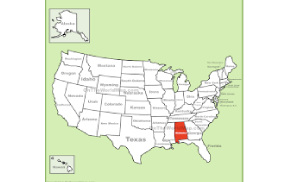By on
In a court hearing yesterday in the Montgomery County Circuit Court, it appeared that the staff of the Alabama Medical Cannabis Commission was prepared to move forward announcing licensees at its meeting on Thursday and that Judge James Anderson – entrusted with all current medical cannabis litigation – would allow for that process to play out as the commission wished before hearing challenges to the process.
The stated purpose of yesterday’s hearing was to hear arguments on outstanding motions, including (1) a motion to deem Dr. Steve Stokes ineligible for service on the commission due to his position as a public official (which was mooted since Dr. Stokes has since resigned his position); (2) a motion to allow for expedited discovery by applicant Alabama Always (which was mooted when the commission provided an affidavit from a commission staff member); (3) a motion to allow applicants to speak with the commission about the application process, even those topics subject to pending litigation, under the First Amendment of the United States Constitution and the Alabama Constitution; and (4) a motion to require the commission to comply with Alabama’s Open Meetings Act when it meets to award licenses.
Because the first two issues were mooted, the court heard brief arguments and addressed the remaining two issues. On the First Amendment point, the court noted that an Alabama State Bar Opinion controlled the issue and that any complaints regarding violations of the Alabama Rules of Professional Conduct should be addressed with the State Bar. The court noted, however, that it was of the opinion that applicants should be able to attempt to engage in discussions with the commission – provided that the discussions did not seek to invade any privilege – but that it was also the commission’s decision whether to engage in such discussions. On the issue of the Open Meetings Act, the court obtained what it felt were assurances from the commission that the commission would comply with the act and noted that aggrieved parties could seek redress after the fact if the commission failed to comply.
In our minds, there are two key takeaways from yesterday’s hearing. First, the meeting on Thursday is on and the commission staff intends for licenses to be awarded during that meeting (whether commissioners, who ultimately make the decision, will choose to do so was not addressed and remains an open question). Second, the court remains extremely disinclined to do anything to stop the commission from undertaking its duties under the law as the commission interprets the law. That means the court is giving the commission all of the rope it needs. And it all but assures that we will be back in court shortly after any award of licenses, and at that time the court will be asked to address the myriad questions posed by litigants that the court has deferred until that time. In other words, we are likely to have an old-fashioned Royal Rumble on our hands in the coming weeks. Stay tuned.




